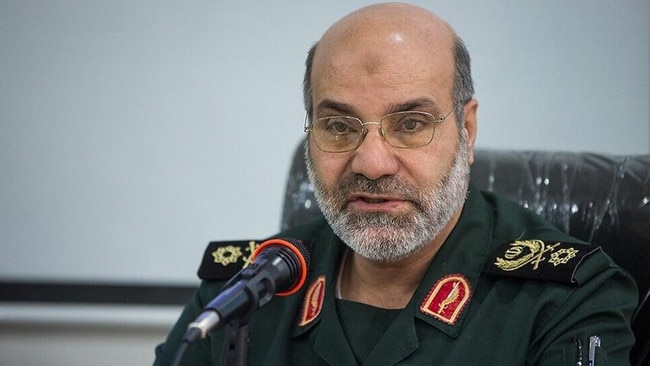
At the same time, the tragedy of the death of an Australian aid worker in Gaza, also apparently killed by an Israeli airstrike, points to the shocking consequence of the decision by Hamas, and by Iran, to make the war against Israel a war conducted among civilians.
Israel will rightly conduct a full investigation into this tragedy and all Australians would offer sympathy and condolences to our citizen. Aid workers are typically among the bravest people in any conflict zone.
The Israel Defence Forces takes strenuous efforts to minimise civilian casualties but Hamas has designed its military strategy to force Israel to strike in built-up areas. The bombing of an Iranian military commander in Damascus is something altogether different.
Mohammad Reza Zahedi was a senior leader of the Iranian Revolutionary Guard Corps Quds force. He and several other IRGC commanders were killed by what was apparently an Israeli airstrike on a building near the Iranian embassy. Iran says the building, which was destroyed in the strike, was a consulate. Israeli spokesmen say it was a military establishment.
The IRGC is designated under US law as a terrorist organisation.
Israel has consistently struck at Iranian military establishments, and individual leaders, in Syria.
Most of the terrorism and conflict roiling the Middle East today has a big Iranian component, Much of it originates in Tehran.
Iran has for decades been the key sponsor of Hamas, which itself is designated as a terrorist organisation under Australian law. It is also the key sponsor of Hezbollah in southern Lebanon and the Houthi militia in Yemen.
It controls a number of Shia militia in Iraq and is deeply involved in the Syrian civil war.
Israel sees Iran’s nuclear program as potentially an existential threat to the Jewish state. But Israeli operations against Iran in Syria have been much more targeted at Iranian efforts to provide weapons – especially missiles and drones – to Hamas.
Interestingly Russia, which has two military bases in Syria, does not take any action to impede Israeli strikes against Iranian targets there, provided Israel makes sure to keep away from Russian forces.
This is despite Iran’s role in selling military drones to Russia for use in its war against Ukraine.
The other striking aspect of Israel’s actions against Iran in Syria is that they are effectively the only direct price that Iran pays for all its sponsorship of terrorism and military conflict in the Middle East.
The worst aspect of US President Joe Biden’s Middle East policy has been his determination to woo the Iranian government rather than contain it. This grievous policy blunder seems to be driven by nothing more profound than a desire to do the reverse of whatever Donald Trump did in office. It has yielded zero results for Washington, but has freed up a lot of money that Iran has used to sponsor its military and political proxies around the region.
Iran’s deterrence of the US has worked. The US has been extraordinarily cautious about responding to even direct attacks by Iranian proxies on US forces and bases in the Middle East. But US deterrence of Iran has mostly not worked, as Iran has unleashed its proxies to attack all its regional enemies. By using proxy forces, such as Hezbollah and the Houthis, Iran insulates itself from direct retaliation.
Israel’s actions against Iranian forces in Syria are thus the only direct price Iran pays for its regional military actions. Iran has promised a harsh response to Israel, but it’s unlikely to strike Israel directly itself as the benefits of using proxy forces are so obvious.
Nonetheless, the danger of broader conflict in Syria, Lebanon and elsewhere is significant.



Israel’s surgical strike to hit a number of senior Iranian military commanders in Syria demonstrates the intense danger of a new war on Israel’s northern front.